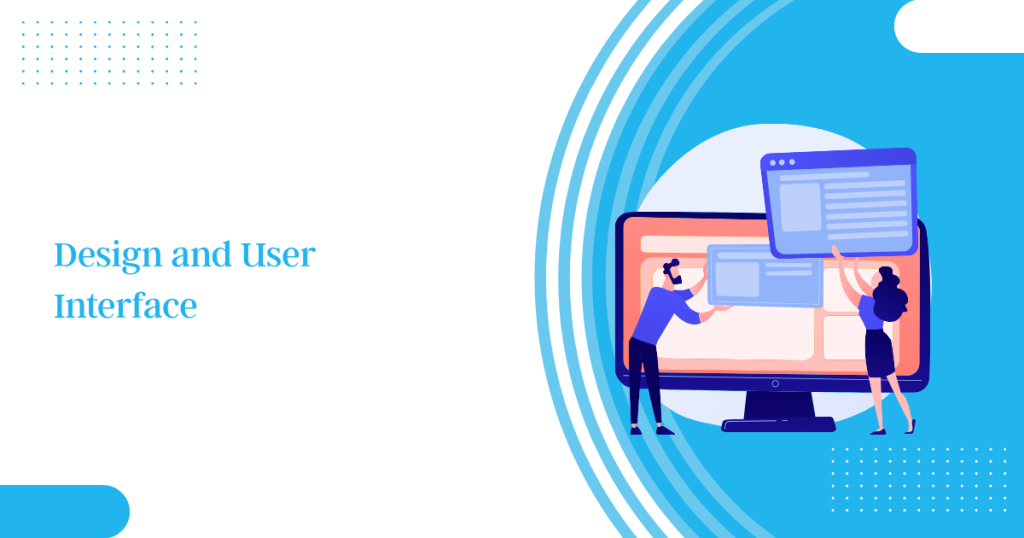Whether you’re a startup with a disruptive idea or an established business wanting to engage more customers, choosing the right mobile platform is one of the most important decisions you’ll make. The debate of Android vs. iOS development is ongoing, and the right answer often depends on your business goals, target audience, budget, and timeline.
As a leading web development company in Jaipur, WITH U Technology has helped businesses across sectors navigate this choice wisely. This article breaks down both platforms to help you decide which one to build first.
Understanding the Basics: Android and iOS
Android, developed by Google and used on most smartphones worldwide, including Samsung phones, OnePlus phones and Xiaomi handsets, as well as many manufactured by other manufacturers; whilst Apple’s exclusive operating system
Both platforms provide robust ecosystems and development environments, though their audience reach, design, monetisation strategy and technical complexity vary considerably.
1. Market Share and Audience Reach
Android is undisputedly the platform with the widest market reach; recent estimates place Android at over 71% global market share.
Choose Android if:
You’re targeting users in Asia, Africa, or Latin America, where Android dominates.
Your goal is broad accessibility and wider app distribution.
Choose iOS if:
You’re focusing on premium markets like the US, Canada, Australia, or Western Europe.
Your target audience is high-income, brand-loyal Apple users.
2. Development Cost and Time

Developing for iOS is often quicker and more consistent, thanks to the limited range of Apple devices. Android development, however, can be more challenging due to the wide array of devices, screen sizes, and OS versions that exist today.
Android:
More time-consuming to test due to fragmentation.
Requires extensive QA to ensure compatibility.
Greater customisation and flexibility.
iOS:
Faster to develop and test.
Stricter app store guidelines.
Limited device variations mean a more streamlined process.
Note: The cost of development for both platforms depends on app complexity, but Android may require a slightly higher budget due to testing and optimization.
3. Monetisation Potential
If revenue generation is your primary goal, you should look at how users spend on each platform.
iOS users spend more on apps and in-app purchases, which makes it the preferred platform for premium or paid apps.
Android users are more likely to engage with ad-based or freemium models.
Choose iOS if:
You’re targeting affluent users or a business market.
Choose Android if:
You plan to use ads or offer free utility apps.
You aim for mass adoption in diverse geographies
4. App Store Guidelines and Approval
The App Store has stricter guidelines and a more rigorous review process, which can sometimes delay your app launch.
Apple App Store: Approval takes longer, with a higher chance of rejection due to policy violations.
Google Play Store: More lenient and faster review process.
While Apple’s rules ensure high-quality apps, they also require developers to follow strict design and functionality protocols.
5. Design and User Interface

Apple is known for its polished, uniform design language, while Android offers more flexibility and customisation.
iOS apps tend to look cleaner and more consistent due to Apple’s strict UI guidelines.
Android apps offer design freedom but may vary more in quality depending on the developer.
Working with a trusted web development company in Jaipur ensures that your app maintains high UI/UX standards, regardless of the platform.
6. Maintenance and Updates
Both platforms require regular maintenance and updates. However:
iOS users tend to update their devices quickly, making it easier to phase out older versions.
Android has more fragmentation, meaning developers need to support a wider range of OS versions.
Long-term, iOS can be easier to maintain, but Android offers flexibility for innovative features and UI/UX experimentation.
Cross-Platform vs Native Development
If you’re struggling to choose between the two, consider cross-platform development frameworks like Flutter or React Native. These allow you to build for both platforms with a shared codebase, saving time and money.
WITH U Technology, a trusted name in Mobile App Development and web solutions, frequently recommends cross-platform apps for startups and businesses with tight budgets and timelines.
So, Which One Should You Choose First?
Here’s a quick summary:
| Goal | Recommended Platform |
| Broad global reach | Android |
| Higher revenue per user | iOS |
| Fast development | iOS |
| Mass user engagement | Android |
| Premium, brand-conscious audience | iOS |
| Highly customised features | Android |
| Strict budget | Android or cross-platform |
Still uncertain? Don’t feel pressured—there’s no need to make this decision alone! Reach out for assistance from friends or family.
✅ Final Thoughts
Both Android and iOS offer unique advantages, and your ideal platform depends on who your users are, how you plan to monetise, and what your development resources look like. The smartest approach is often to start with one platform based on your primary target audience, then expand to the other as your app gains traction.
Companies like WITH U Technology a leading web development company in Jaipur, offer expert guidance in choosing the right platform, building an intuitive UI/UX, and ensuring your mobile app meets market expectations.







